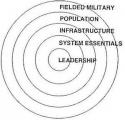Published: Sunday, January 23, 2000
Crime rate falls in U.S., and no one is sure why
MICHAEL FLETCHER WASHINGTON POST
Why is crime down in America?
.....
Much of the evidence offered to support these theories is, in the end, contradicted by history or otherwise unraveled. Yes, the economy is better. But it also boomed during the 1960s, when crime began its steep upward march. And in the past, crime has waned during economic downturns, most notably during the Great Depression.
.....
It may well be that there is no way to know what will happen with America's crime rates because the factors that influence them are too complex.
In his new book, ``Butterfly Economics: A New General Theory of Social and Economic Behavior,'' British economist Paul Ormerod argues that human behavior is essentially unpredictable, in large part because individuals are as likely to be influenced by one another as by objective factors such as poverty or the police.
Will crime rise or fall in the next generation? You can ask the same thing about hemlines with as much chance of accurately predicting the answer, he maintains.







 Von Mises put me to sleep.
Von Mises put me to sleep.







Bookmarks